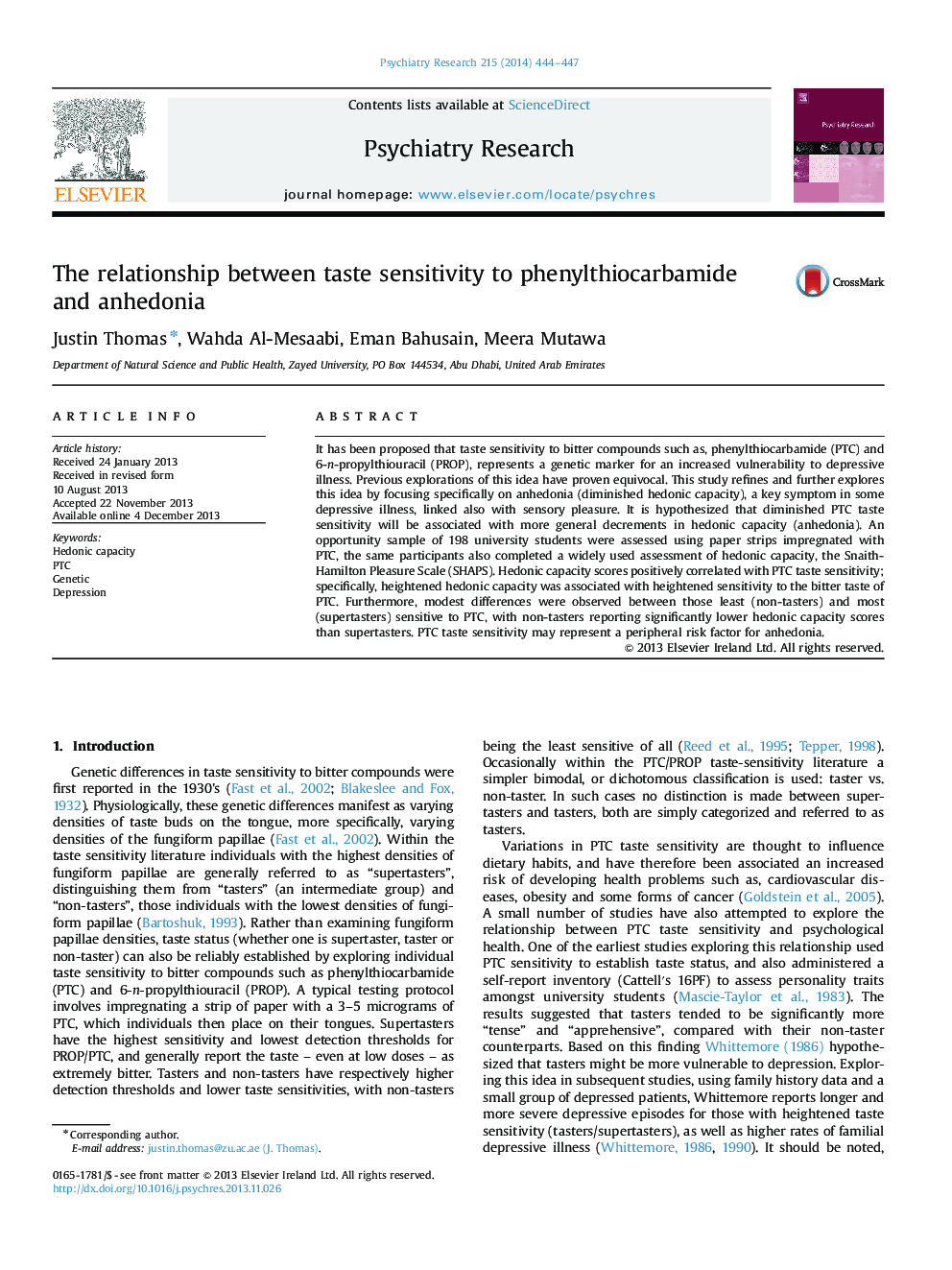| Article ID | Journal | Published Year | Pages | File Type |
|---|---|---|---|---|
| 333071 | Psychiatry Research | 2014 | 4 Pages |
It has been proposed that taste sensitivity to bitter compounds such as, phenylthiocarbamide (PTC) and 6-n-propylthiouracil (PROP), represents a genetic marker for an increased vulnerability to depressive illness. Previous explorations of this idea have proven equivocal. This study refines and further explores this idea by focusing specifically on anhedonia (diminished hedonic capacity), a key symptom in some depressive illness, linked also with sensory pleasure. It is hypothesized that diminished PTC taste sensitivity will be associated with more general decrements in hedonic capacity (anhedonia). An opportunity sample of 198 university students were assessed using paper strips impregnated with PTC, the same participants also completed a widely used assessment of hedonic capacity, the Snaith-Hamilton Pleasure Scale (SHAPS). Hedonic capacity scores positively correlated with PTC taste sensitivity; specifically, heightened hedonic capacity was associated with heightened sensitivity to the bitter taste of PTC. Furthermore, modest differences were observed between those least (non-tasters) and most (supertasters) sensitive to PTC, with non-tasters reporting significantly lower hedonic capacity scores than supertasters. PTC taste sensitivity may represent a peripheral risk factor for anhedonia.
